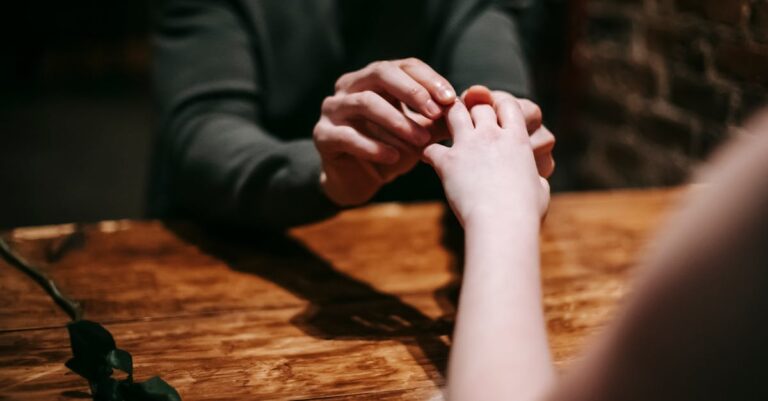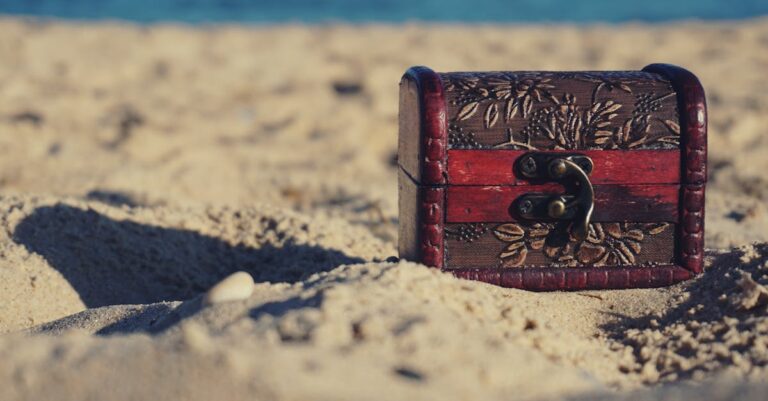
The first time she saw him, the sea was bleeding. A storm had rolled in overnight, turning the harbor into a cauldron of gray waves that crashed against the docks with relentless fury. Clara stood at the edge of the breakwater, her fingers curled around the cold iron railing, watching the fishermen haul in their nets as if they were pulling up secrets from the deep. He was among them, his back to her, shoulders hunched against the wind, arms taut with the strain of a line that had nearly snapped. She didn’t know his name then, only that his presence felt like a chord plucked too hard in her chest.
He turned as the net came loose, and for a moment, the storm seemed to pause. His face was sunburned, his hair a mess of dark curls plastered to his forehead, but his eyes—those were sharp, the color of storm clouds before the rain. He caught her staring and frowned, then turned back to the work, as if she’d been nothing more than a ripple on the water.
Clara didn’t see him again for three days. When she did, it was in the narrowest part of the harbor, where the boats bobbed like restless animals and the salt air tasted like iron. He was leaning against a crate, chewing a piece of bread, watching her with that same unreadable expression. She’d been sketching the lighthouse, its white tower cutting through the sky like a bone, but the moment he appeared, her pencil skidded across the page.
“You’re the painter,” he said, not a question but a statement, as if he’d already decided what she was.
She didn’t answer. Instead, she tucked the sketchbook beneath her arm and turned away, but not before catching the way his gaze lingered on the curve of her neck. It was a small thing, but it made her pulse quicken in a way she hadn’t expected.
He introduced himself as Jace the next morning, though he didn’t offer a last name. They met at the edge of the water, where the tide left behind shells and bits of kelp, and he talked about the sea like it was a living thing with its own moods. He showed her how to read the waves, how to tell if a storm was coming by the way the gulls scattered. She listened, fascinated, but kept her own thoughts guarded, as if speaking them aloud might make them real.
Weeks passed in a blur of salt and sunlight. Jace taught her to mend nets, to tie knots that held against the worst of the sea. She taught him to see the world in colors, to look beyond the horizon and find beauty in the mundane. They walked along the cliffs at dawn, their boots crunching over gravel, and talked about things that didn’t matter—books they’d read, songs they’d heard, the way the wind smelled after a storm. But beneath it all was something unspoken, a current pulling them toward each other even as they tried to resist.
It wasn’t until the night of the fire that Clara realized how much had changed. The flames roared through the warehouse where Jace kept his boat, devouring wood and canvas in a matter of minutes. She’d been inside, finishing a sketch of the sky, when the smoke seeped in, thick and acrid. She ran, coughing, into the arms of a man who didn’t hesitate before pulling her to safety.
Jace’s hands were raw from the heat, his face streaked with soot, but he didn’t let go. He held her until the fire was out, until the sirens faded into the distance. And when he finally stepped back, his eyes were darker than she’d ever seen them, filled with something that looked like fear.
“You shouldn’t have been there,” he said, his voice rough, as if it had been burned along with the warehouse.
Clara didn’t answer. She couldn’t. All she could do was watch the way his fingers trembled, the way he kept glancing over his shoulder as if the fire might come back to haunt him.
That night, they sat on the dock, their legs dangling over the water, the stars reflected in the black surface like scattered coins. Jace didn’t speak for a long time, just stared at the horizon as if expecting an answer to come with the tide. Finally, he said, “I lost someone in the sea. A year ago.”
Clara didn’t ask who. She already knew, in a way. The way he spoke of the ocean, the way he carried its weight in his bones. She reached out, her hand hovering above his, and for a moment, neither of them moved.
“I’m not sure I can let you in,” he said, his voice barely above a whisper.
She didn’t know what to say to that. So she said nothing. Instead, she leaned forward and kissed him, soft and careful, as if he might break beneath her touch. And when he kissed her back, it was like the storm had finally passed, leaving only the quiet afterglow of something new.
In the weeks that followed, they built something fragile and real. Jace taught her how to sail, how to read the stars instead of the compass. She painted him in the early light, his silhouette against the water, his hands calloused from years of work. They argued sometimes, over small things—what to eat for dinner, whether the clouds would bring rain. But those arguments never lasted long, always ending with a touch, a glance, a silence that said more than words ever could.
Then came the letter. It arrived on a Tuesday, slipped under the door of her cottage, its seal broken, its ink smudged by rain. The handwriting was unfamiliar, but the message was clear: “You don’t belong here.” It wasn’t a threat, not exactly, but it felt like one. Clara read it again and again, searching for meaning in the way the words were arranged, as if the letters themselves might reveal who had sent it.
Jace found her sitting on the porch, the letter crumpled in her hands. He didn’t ask what was wrong. He just sat beside her, his presence a quiet anchor in the chaos of her thoughts. “Who wrote this?” he asked, and she shook her head.
“I don’t know,” she said, but the truth was, she did. It was the same voice that had haunted her dreams for weeks, the one that whispered doubts into her mind when she wasn’t looking. She didn’t tell Jace that. Instead, she let the wind take the letter, watching it spiral into the sky like a bird with no destination.
The next morning, Clara woke to the sound of waves crashing against the rocks. She went outside and found Jace standing at the edge of the water, his back to her, staring at the horizon. She walked up behind him, her bare feet sinking into the sand, and said, “I’m scared.” It was the first time she’d admitted it out loud, and the words felt heavy on her tongue.
Jace turned, his expression unreadable. “Of what?” he asked, but she could see the worry in his eyes, the way his jaw tightened as if he already knew the answer.
“Of everything,” she said. “Of losing you. Of not being enough. Of this all ending.”
He stepped closer, his hand finding hers, and for a moment, they stood there, just breathing. Then he said, “It won’t end. Not if we don’t let it.”
Clara didn’t respond. She didn’t need to. The wind had shifted, carrying the scent of salt and something else—something new. And as she looked at Jace, she knew, with a certainty that settled in her bones, that this was where she was meant to be.
They didn’t talk about the letter again. Instead, they went to the dock and watched the sun dip below the horizon, painting the sky in hues of orange and purple. Jace lit a cigarette, took a long drag, and handed it to her. She didn’t smoke, but she took it anyway, letting the smoke curl around her like a promise.
“You’re not alone anymore,” he said, and this time, she believed him.
The days that followed were quiet, but not empty. Clara painted more than just the sea—she painted Jace, her fingers moving across the canvas with a confidence she hadn’t known before. Jace worked the boats, his hands calloused but his heart open in a way she’d never seen. They built something between them, fragile and real, and for the first time in a long while, Clara felt like she was exactly where she was supposed to be.


